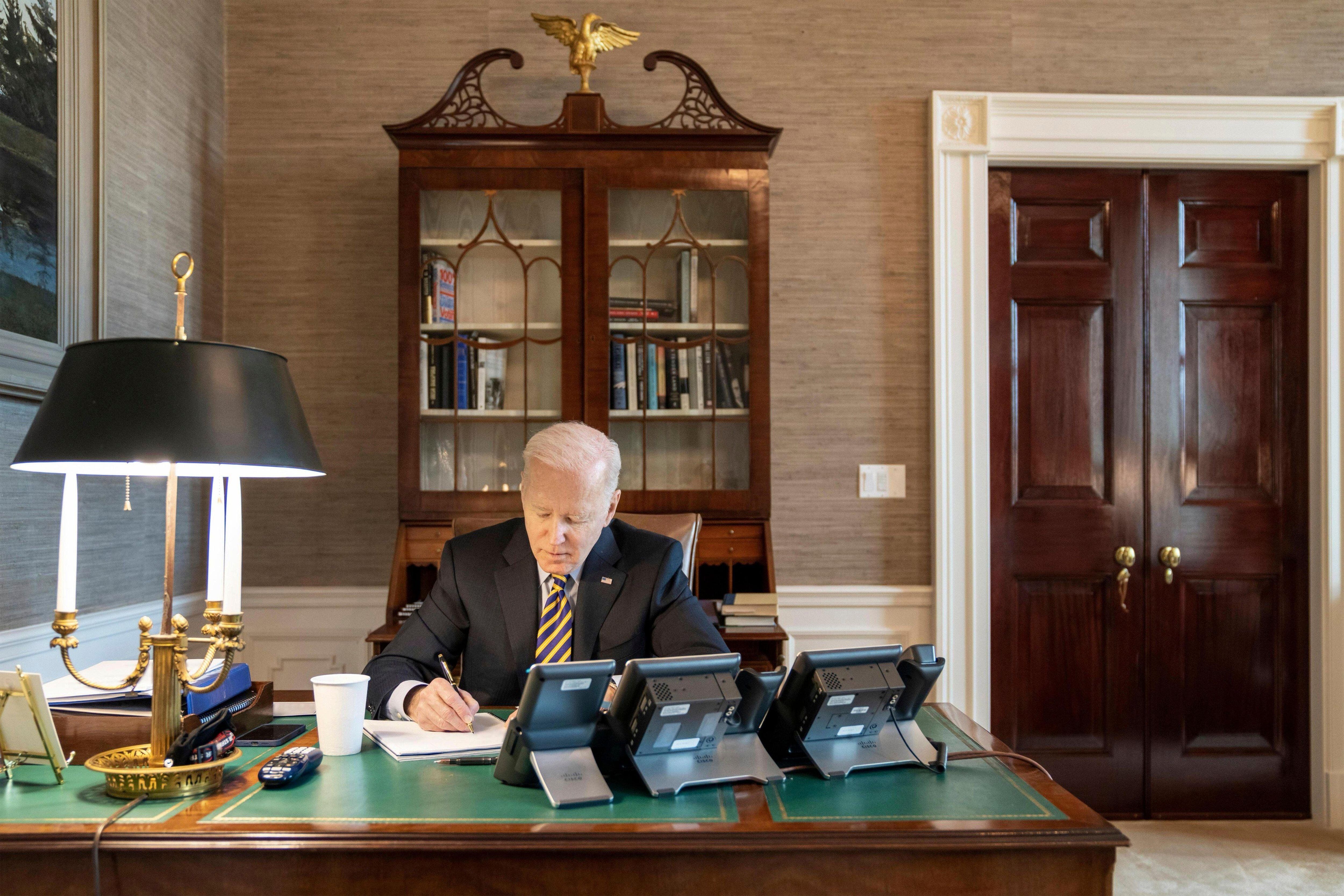Just days before jetting to Europe for next week’s NATO summit in Vilnius, Lithuania, President Joe Biden has approved the shipment of deadly cluster munitions to Ukraine.
Critics in the US government argue that this puts the US out of step with its allies. More than 100 countries -- notably not Russia, Ukraine, or the US -- have banned the use of cluster munitions through the 15-year-old Convention on Cluster Munitions.
Why these arms, and why now? Cluster munitions, which shower smaller bombs around targets, have already been used by both Ukrainian and Russian forces. They are considered highly effective for their ability to target troops in trenches. These have been on Zelensky's wish list for months and will help supplement Kyiv’s dwindling supply of conventional artillery shells amid its counteroffensive.
The UN and human rights activists, however, are demanding that both sides in the war halt use of such weapons, which they say will continue to claim victims for many years to come, especially small children who unknowingly pick up duds. The move also raises ethical questions, taking the US well beyond simply training and supplying conventional weapons — and the announcement ironically dropped on the same day the US was set to destroy the last of its chemical weapons arsenal.
US officials, for their part, say they will work with Kyiv to track the shipments and clean up unexploded munitions. But beyond the frontlines, shipping cluster munitions to Ukraine is bound to raise plenty of questions from US allies — which means Biden could also face an uphill battle in maintaining NATO unity.
